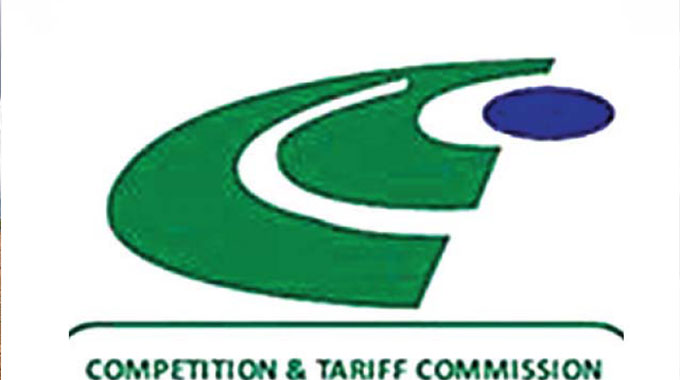Pricing cartels under probe

Oliver Kazunga, Senior Business Reporter
THE Competition and Tariff Commission (CTC) has raised fears over the possibility of some producers colluding to increase the cost of goods and services under the disguise of setting recommended price ranges.
The tariff and competition watch dog said yesterday that it has come to its attention that some producers and/or manufacturers were publishing recommended price ranges within which retailers or wholesalers must trade their goods or services.
While the practice seems to be aimed at cushioning consumers from likely exploitation by unscrupulous retailers, CTC said this was in violation of the Competition Act (Chapter 14:28), which gives the commission the mandate to promote and maintain fair competition in all sectors of the economy.
“Whilst the initiative is deemed noble by consumers, however, from the commission’s perspective, such an initiative can be used as a platform of operationalising a cartel — the worst evil of all conducts in competition policy law and enforcement circles,” said the commission.
“Players in the downstream, namely retailers and wholesalers, can construe the recommended price ranges as the minimum and maximum prices at which the goods can be sold in the market, disadvantaging consumers.”
While price ceilings can be viewed as a mechanism to protect consumers from exploitation by unscrupulous retailers, CTC said the same cannot be said for the conduct of recommending minimum prices to be charged on goods and services. This, it said, was in light of the likely anti-competitive effects to arise from such initiatives.
“While it is permissible to set maximum recommended prices, the Act views setting a minimum resale price as an unfair business practice, a conduct prohibited in the Act.
“Accordingly, specifying minimum and maximum price ranges to be charged by wholesalers/ retailers can be construed as setting minimum resale prices, an initiative which stifles competition amongst retailers or wholesalers,” said the commission.
It also said floor price settings act as a disincentive for efficient operators and innovators, as failure to charge the lowest possible price defeats the whole essence of promoting competition and enhancing consumer welfare.
“In such instances, the commission reserves the right to commence investigations where producers/ manufacturers of products set minimum prices to be charged by retailers or wholesalers,” said CTC.
“Depending on the outcome of the investigation, it can issue ‘Orders’ in terms of section 31 of the Act.”
Accordingly, the competition regulator directed players in the market to desist from recommending minimum and maximum price ranges given the possible negative implications, specifically not the minimum price.
The acceptable approach in line with the Act, it added, was the recommendation of a maximum price not a range of prices. — @okazunga.











Comments